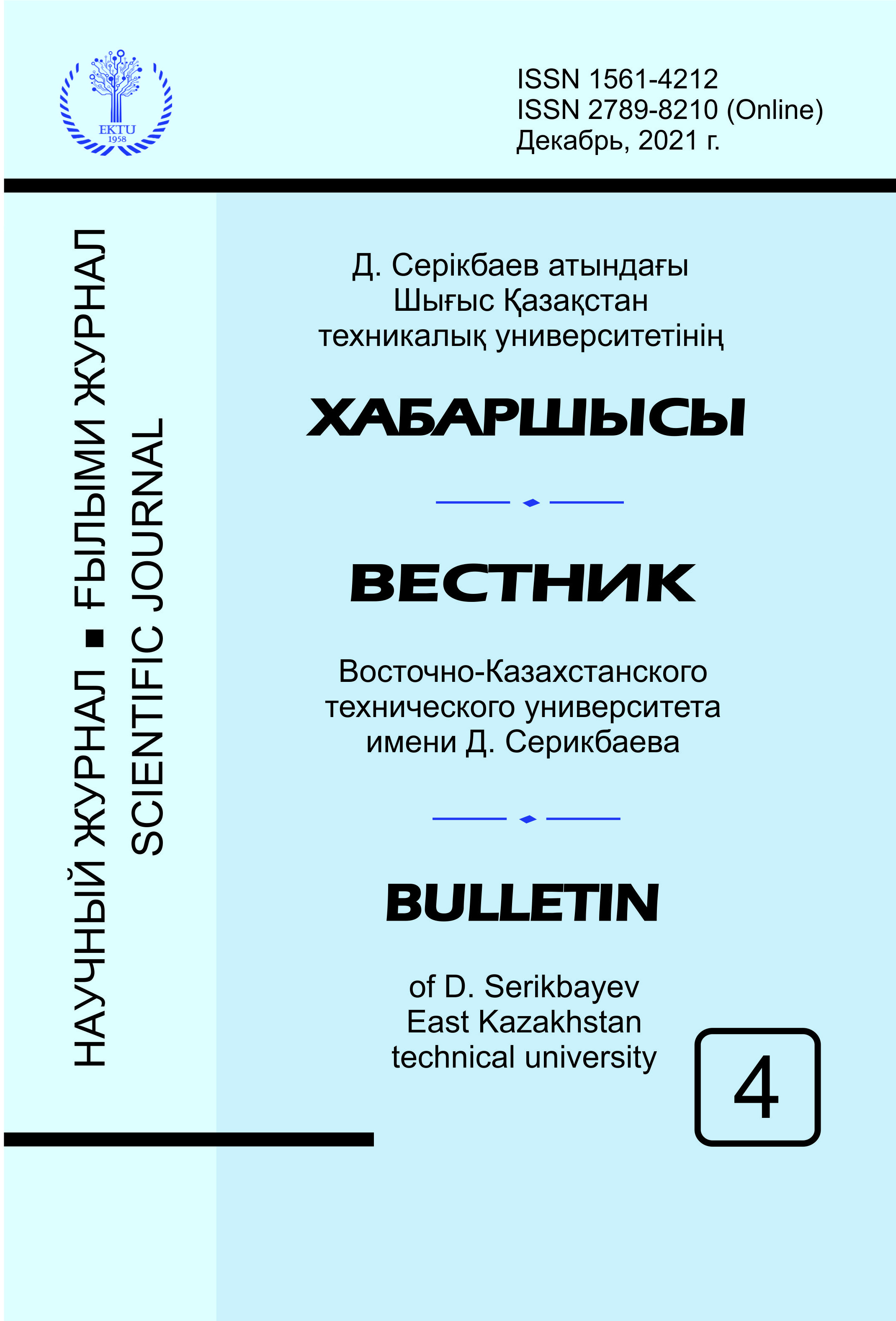MULTI-PASS QUALITY CONTROL MANAGEMENT PARADIGM IN STOCHASTICALLY PROGRAMMABLE MULTI-AGENT SYSTEMS
Published:
2022-02-10Section:
СтатьиArticle language:
KazakhKeywords:
Process, model, probability, decision making, statistics, modeling, distribution law, pressure.Abstract
The article aims to develop a methodology for quantitative assessment and forecasting of the quality of decision-making in organizational and technical systems under the conditions of uncertainty of control agents. A stochastic model for predicting the reliability of control results and decision-making risks under the uncertainty of model agents was developed. The paper proposes a method for aggregating system structural uncertainties of the control and measurement process on the example of robust multi-aspect. The proposed mathematical application implements a multi-agent approach to solving the general problem of evaluating the robustness of control according to the criteria of "producer risk" and"consumer risk". For the purposes of modeling, such branches of mathematics and methods as probability theory and mathematical statistics, regression and correlation analysis, expert evaluation methods, simulation and structural-functional modeling, and agent-based approach are used.
Modeling is considered on the basis of statistical data of existing industrial and socio-economic objects. The quality of mathematical modeling is supported by computer experiments with simultaneous graphical visualization of the results, which increases the productivity of the study. A probabilistic model has been developed to assess and predict the reliability of control and decision-making risks under the uncertainty of system agents. The novelty of the proposed model consists in taking into account the statistical nature of normative values. The paper proposes a method for forming structural uncertainties of the control and measurement process on the example of technical diagnostics. The proposed mathematical application implements a dual method for solving the general problem of assessing the quality of the control process by the magnitude of risks in the decision-making system. In the first case, the problem of quantitative risk assessment is solved for given statistical characteristics of control agents, and in the second case, the necessary measurement accuracy is determined for given uncertainties and risk levels in the control system. The paper presents the results of computer modeling on the example of assessing the reliability of blood pressure control.
Most read articles by the same author(s)
- Карлыгаш Алибеккызы, RISK ASSESSMENT OF CONTROL AND DECISION-MAKING IN THE AIRCRAFT CONTROL SYSTEM , Вестник ВКТУ: No. 1 (2023): "Vestnik D. Serikbayev of EKTU"
- Карлыгаш Алибеккызы, ALGORITHM FOR DESIGNING VR APPLICATIONS FOR TECHNOLOGICAL PROCESSES OF AVIATION EQUIPMENT REPAIR , Вестник ВКТУ: No. 3 (2022): "Vestnik D. Serikbayev of EKTU"
- Карлыгаш Алибеккызы, GEOSPATIAL DIGITAL TWIN OF THE NEAR-AIRDROME ECOLOGICAL ENVIRONMENT , Вестник ВКТУ: No. 2 (2023): "Vestnik D. Serikbayev of EKTU"
- Карлыгаш Алибеккызы, SMART TECHNOLOGIES IN RISK MANAGEMENT CONTROL AND DECISION-MAKING SYSTEMS IN A FUZZY DATA ENVIRONMENT , Вестник ВКТУ: No. 3 (2022): "Vestnik D. Serikbayev of EKTU"
- Карлыгаш Алибеккызы, FORMAL METHODS FOR ASSESSING THE LEVEL OF DIGITAL MATURITY OF THE AVIATION INDUSTRY , Вестник ВКТУ: No. 4 (2022): "Vestnik D. Serikbayev of EKTU"
- Карлыгаш Алибеккызы, CREATING COMPUTER SIMULATION OF MOVEMENT CONTROL PROCESSES OF ROBOT-MANIPULATORS , Вестник ВКТУ: No. 1 (2025): "Вестник ВКТУ им.Д.Серикбаева"
- Карлыгаш Алибеккызы, ONTOLOGICAL ENGINEERING TO DETERMINE REVEAL INTER-SUBJECT RELATIONS BETWEEN MATHEMATICS AND COMPUTER STUDIES , Вестник ВКТУ: No. 4 (2022): "Vestnik D. Serikbayev of EKTU"
